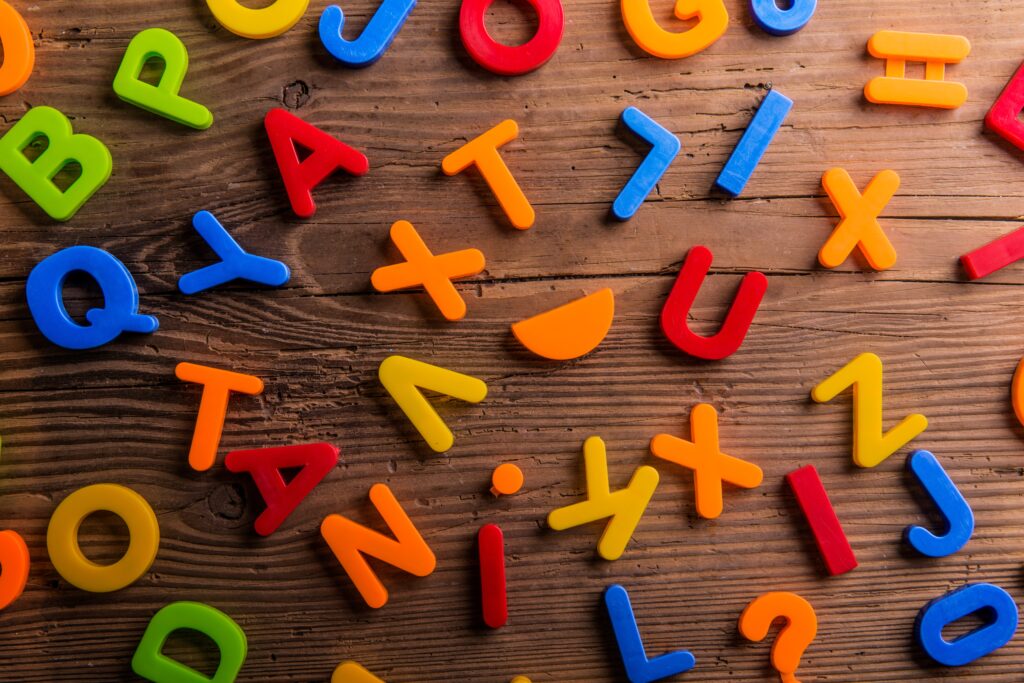Whether or not you’re getting ready to enroll in the national spelling bee, if you’re curious about the hardest english words for college students to spell, this list of 70 might surprise you!
One of the most overlooked but incredibly valuable skills for college students is impeccable spelling. We might not be taking spelling tests anymore, but spelling is incredibly important in your professional life.
Good spelling demonstrates attention to detail, professionalism, and a thorough understanding of the subject or topic you are writing about. A well-spelled email, paper, assignment, job application, or other written communication boosts your respect and credibility as a student and young professional.
In the digital age of written communication, mastering spelling is a foundational skill that can set you apart from your peers. The first step to improving your spelling is knowing what words are commonly misspelled to get ahead of the game. While there’s no adult spelling bee on a regular basis, it takes time, practice, and commitment to become an exceptional speller, but there’s no doubt that you’ll benefit in the long run!
We compiled a list of some of the most challenging words for university students to spell. You should know and learn these words with common misspellings to avoid spelling issues at university.

But First, What Makes a Word Tricky to Spell?
Spelling can be challenging for a variety of reasons. Here are some noteworthy factors that can make a word tough to spell and lead to common spelling errors:
- Silent letter combinations: Words with silent letters, like the P in “psychology,” are some of the biggest culprits of improper spelling. When you’re not aware of or familiar with the word, it’s nearly impossible to know to include a sneaky silent letter.The silent e tends to get a lot of people too.
- Consecutive double letters: Words with consecutive double letters and double consonants, like “commitment,” can be particularly tricky for some. Determining which letter is the double can be perplexing, especially when it doesn’t impact the word’s pronunciation.
- Origin of a word: Words borrowed from other languages (outside of American English) may retain their original spelling, like a latin word or a french word, which means they may not follow English conventions.
- Letters with multiple sounds: Some letters can but might not always make the same sound, making it tricky to determine which letter is correct.
- Irregular phonetics: Some words don’t follow standard phonetic rules. Pronunciation may not match the spelling, making them difficult to spell. A tricky combination of letters can make it challenging.
- Words with different spellings: Some words can be spelled multiple ways which often confuses people.
You might also have a difficult time spelling new words, especially if spelling is not your strong suit. Below, we have a couple of tips to make it easier to spell those vocabulary words!
20 Most Difficult Words for College Students to Spell
Let’s look at a complete list of tricky words that college students misspell and why, listed alphabetically.
Accommodate
The word “accommodate” is frequently misspelled because of its consecutive double letters in two places. Students typically forget which letters are consecutive doubles, primarily since the word’s pronunciation doesn’t necessarily provide clues or cues for the correct spelling.
Acknowledge
“Acknowledge” trips college students up for various reasons, including the placement of vowels, the silent letter K, and the pairing of “dg” together. It can be helpful to focus on practicing spelling the word “knowledge” first.
Argument
“Argument” is a tricky one because “argued” and “argues” include the letter E, but “argument” does not. It’s common to see the letter E sneak in where it doesn’t fit.
Beginning
The word “beginning” includes a double consecutive letter N and a nonconsecutive double G. Students might forget which letter is a double consecutive and instead use a double consecutive letter G.
Conscientious
This is a relatively long and complex word! And you might not use “conscientious” super often in your conversations and work, depending on your major and field of study. The presence of double letters can lead to confusion since there are so many of them. In addition, the combination of “sc” can be hard to remember.
Definitely
If you commonly misspell “definitely,” you certainly are not alone. The second E is silent when you pronounce the word, and many people mix up the second I with the letter A. If you frequently misspell this word, it can be challenging to relearn the proper spelling since we use it often, and you may have reinforced the improper spelling in your memory.
Embarrass
More double consecutive letters for the win! No matter how often you use the word “embarrass” or “embarrassment,” it’s difficult to recall.
Entrepreneur
The word “entrepreneur” has a French origin from the word “entreprendre.” Its spelling can be unfamiliar, especially for English speakers, since it doesn’t follow standard English phonetics.
February
“February” is sometimes pronounced without the first R, as in “feb-you-ary,” which can lead to omitting the letter when spelling the word. Additionally, “February” is a word we may often see (on calendars, in class syllabi, etc.), but we may not necessarily need to spell ourselves frequently, which might cause some misspellings.
Independent
The word “independent” is packed with syllables and can be challenging for some individuals to spell correctly. You may pronounce some letters silently, which might make it challenging to spell the word. Breaking down the word into its syllables can sometimes be helpful as a quick reminder of proper spelling.
Irresistible
The word “irresistible” is particularly tricky because of the double consecutive R and the “ible” ending of the word. Some might think it seems correct for the word to end with “able” instead,” as “ible” feels unfamiliar.
Maintenance
The word “maintenance” contains several syllables and a mixture of vowels and consonants that don’t follow standard phonetics. In many cases, people spell it as “maintainance” instead. The misspelling of “maintenance” is a result of the intricacies of the English language and the uncommon variations in the word.
Minuscule
“Minuscule” is a word that you may not use often in day-to-day conversations, and it’s easy to misspell because its pronunciation doesn’t match its spelling. The term is typically pronounced as “min-i-skew-l,” so the U is often incorrectly replaced with an I.
Misspell
Funny enough, the word “misspell” is commonly misspelled! People often misspell it with one S or a hyphen between “mis” and “spell.”
Occasionally
While writing this, I accidentally added an extra S to the word “occasionally,” which is not uncommon. The double C can be confusing and cause you to think there should also be a double S.
Necessary
The pronunciation of the word “necessary” does not indicate how many Cs and Ss are in the word. The C and S don’t sound different either, so it’s unsurprising that students sometimes mix up the placement of the letters.
Occurred
Since the word “occur” has one R, some people may follow the same pattern and only include one R in “occurred.” Additionally, when you pronounce “occurred,” the second R is almost silent since the stress is on the first syllable.
Questionnaire
“Questionnaire” is a complex word we don’t use frequently in everyday language, but you may use it more in your coursework. Since people may not encounter this word frequently, it’s easy to misspell it based on lack of exposure and usage.
Separate
The pronunciation of the word “separate” can lead to misspellings because some people hear a distinct “er” sound after “sep.” This leads people to spell the word “seperate” incorrectly.
Vacuum
Let’s be honest: “Vacuum” is a silly word! The double U can be confusing for some people. Additionally, I’ve sometimes added an extra C simply because it feels like it should belong there.

50 More Words That Are Hard to Spell
These are some of the hardest words for people to spell correctly. Many of these are common words and some might surprise you!
- Accessory
- Acquaintance
- Acquiesce
- Amateur
- Ambiguous
- Anemone
- Appropriate
- Asthma
- Baccalaureate
- Champagne
- Charcuterie
- Colleague
- Condescend
- Conscience
- Curriculum
- Disseminate
- Dissertation
- Exhilarate
- Facilitation
- Fluorescent
- Hierarchical
- Hors d’oeuvre
- Hypocrite
- Indict
- Ingenious
- Inoculate
- Intermittent
- Liaison
- Memento
- Miscellaneous
- Mischievous
- Narcissistic
- Nauseous
- Onomatopoeia
- Ophthalmology
- Paraphernalia
- Perseverance
- Phlegm
- Plagiarize
- Pneumonia
- Pterodactyl
- Rendezvous
- Rhetoric
- Scholarship
- Sherbet
- Synchronize
- Unanimous
- Unforeseen
- Wednesday
- Weird
4 Tips for Improving Your Spelling
Improving your spelling as a college student is essential for clear communication, professionalism, and academic success. With time, patience, and the right strategies to help you improve your spelling, you’ll become a better speller in no time! Here are some tried and true tips to help you get started:
Read different types of content regularly:
Reading is one of the best ways to help you improve your spelling. Read books, articles, academic papers, news sources, and more to expose yourself to correctly spelled words in context. The more you read, the better of a speller you’ll become as you internalize the correct spelling of words (and understand how to use them!)
Writing words on paper:
The act of physically writing words can help reinforce your memory and is a good supplement to reading correctly spelled words you are trying to learn. Grab a journal you love and commit to practicing writing words that you frequently misspell.
Creating flashcards when writing words down isn’t enough:
There’s no harm (or shame) in picking up a pack of notecards and making flashcards for yourself for studying purposes. Y
ou could even write the definition of a word on one side and the correct spelling on the other if you want to practice memorizing the meaning of words. Or try writing a word’s pronunciation or syllable breakdown on one side and the proper spelling on the other.
Befriend spell checkers (and use them regularly!):
Using a spell checker isn’t considered cheating; just be aware that you may run into situations where you can’t use a spell checker (such as completing a handwritten exam). I’m a big fan of Grammarly, which will not only help you with spelling, but it can also help you with tone, formality, punctuation, and so much more.

Incorporating these tips into your daily routine and coursework can significantly enhance your spelling skills as a college student. Hopefully this list of hard words to spell will give you a step up above the competition so you can get them right. Use the list of words above and dive in today!
These 70 words are the top hard words for college students to spell. How would you stack up in a spelling bee competition?
More Resourceful College Posts:
- 20 Comfortable College Dorm Ideas for Guys
- 9 Most Affordable Clothing Stores For College Students
- The Best College Classes You Should Choose To Take
- 10 Stand-Out Tips for Emailing Your College Professor
- 50+ Creative Art Project Ideas For College Students
- 7 Things That You Can Try At A College Party
- 70 Hard Words to Spell for College Students
- 20 Effective, Good Study Habits For College Students To Develop
- The Ultimate College Bucket List – What To Do Before You Graduate
- 40 Activities To Put On Your Activities Resume For College
- 100 College Graduation Cap Ideas
- 100 Epic College Event Ideas for Students on Campus
- How to Throw a College Dorm Party
- The Best Router For a College Apartment and Dorm
- 75 Must-Try Virtual Event Ideas For College Students
- 75 Sorority Event Ideas For Sisterhood Activities
